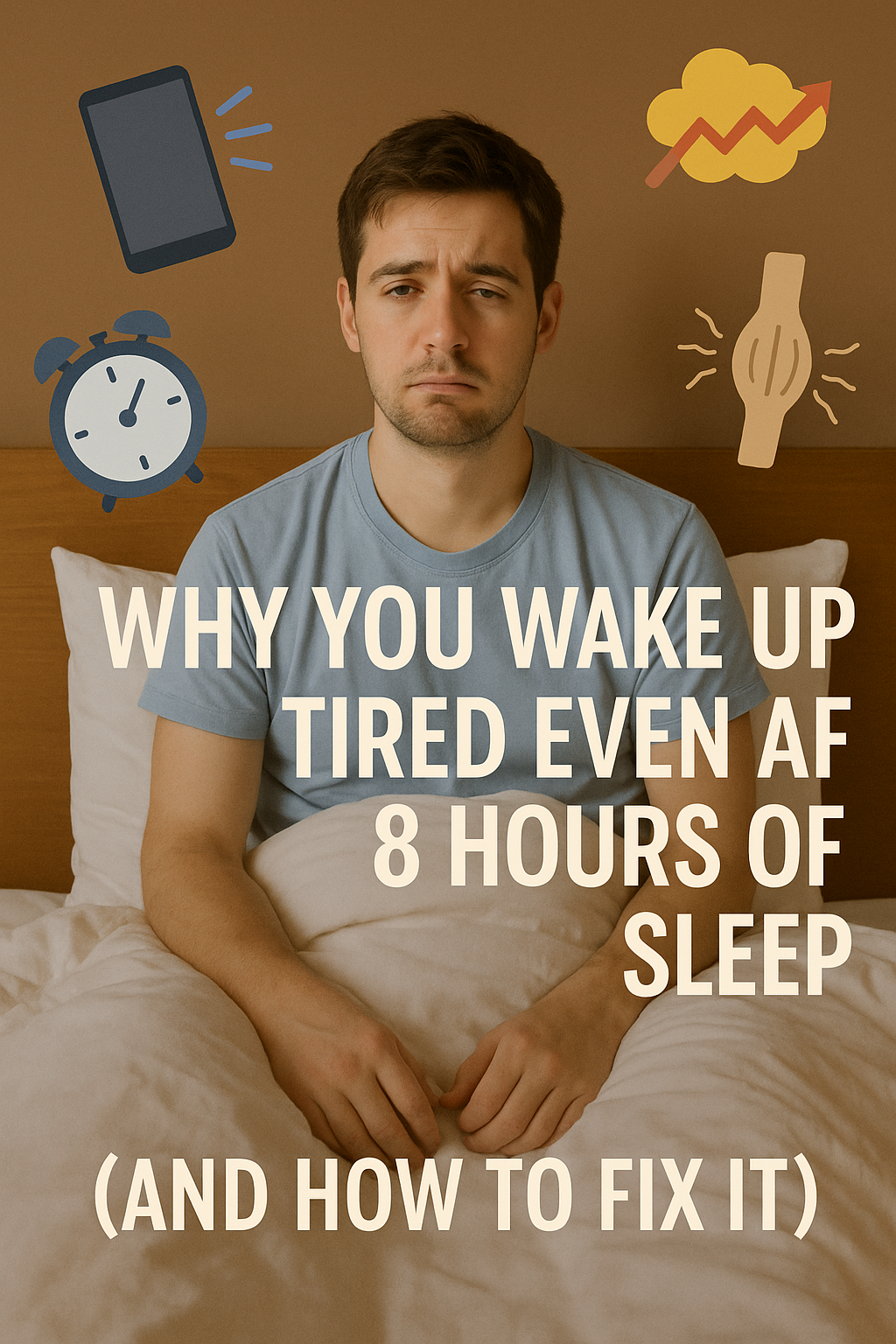
Why You Wake Up Tired Even After 8 Hours of Sleep (And How to Fix It)
Share
You crawled into bed at a reasonable hour, slept a full 8 hours, and yet... you still woke up feeling like you barely rested. Sound familiar?
If this happens regularly, your body might be sleeping - but it's not getting the quality rest it needs. The culprit? Poor sleep hygiene and an overstimulated nervous system that never fully powers down.
The Science Behind Unrefreshing Sleep
Sleep specialists have identified several key reasons why you might wake up exhausted:
-
Blue light exposure from screens suppresses melatonin production
-
Stress hormones like cortisol staying elevated at night
-
Shallow sleep cycles where you don't spend enough time in restorative deep sleep
-
Muscle tension that prevents full physical relaxation
The good news? With some simple evening rituals, you can train your body to achieve truly restorative sleep.
Create Your Perfect Wind-Down Routine
1. The 60-Minute Digital Sunset
Start by eliminating screens at least one hour before bed. Instead:
-
Read a physical book (fiction works best to quiet the mind)
-
Try light stretching or yoga
-
Journal to empty your thoughts
Pro Tip: If you must use devices, enable night mode and reduce brightness significantly.
2. Transform Your Bedroom Into a Sleep Sanctuary
Your environment plays a huge role in sleep quality:
-
Temperature: Keep your room between 60-67°F (15-19°C)
-
Lighting: Use warm, dim lighting after sunset
-
Scent: Diffuse lavender or light a lavender-scented candle (more on this below)
3. The Power of a Relaxing Bath Ritual
Adding a warm bath to your routine can:
-
Lower your core body temperature (signaling sleep readiness)
-
Relieve muscle tension
-
Create powerful sleep associations
Enhance your bath with:
-
Epsom salt (magnesium absorbs through skin to relax muscles)
-
Lavender or chamomile bath salts for aromatherapy benefits
-
A 10-minute foot soak if you don't have time for a full bath
Bonus: Place a candle nearby to engage multiple senses in relaxation.
Why Scent Matters for Sleep Quality
Aromatherapy isn't just hype - it's neuroscience. When you inhale certain scents:
-
The olfactory system sends signals directly to your brain's emotional center
-
Lavender has been shown to increase slow-wave (deep) sleep
-
Vanilla can reduce nighttime awakenings
How to use scent for better sleep:
-
Light a lavender or vanilla soy candle during your wind-down routine
-
Use the same scent consistently to create a sleep trigger
-
Extinguish before bed (or use a candle warmer for flameless option)
The Complete Pre-Sleep Routine
Putting it all together, here's an ideal 60-minute wind-down:
-
T-60 minutes: Digital detox begins
-
T-45 minutes: Prepare a warm bath with Epsom salts
-
T-30 minutes: Light your sleep candle and begin bath
-
T-15 minutes: Dry off, apply lotion, move to bedroom
-
Bedtime: Extinguish candle, turn out lights, sleep deeply
When to Seek Professional Help
While these tips help most people, consult a doctor if you:
-
Regularly take more than 30 minutes to fall asleep
-
Wake up multiple times per night
-
Experience daytime sleepiness despite adequate sleep time
Final Thoughts: Sleep Quality Over Quantity
Eight hours of restless sleep is worse than six hours of deep, restorative sleep. By creating strong sleep associations (like scent and relaxation rituals), you can train your body to achieve better quality rest.
Tonight, try just one element - maybe a lavender candle during your reading time, or a quick foot soak with Epsom salts. Small changes can make a dramatic difference in how refreshed you feel each morning.
